All Students to Receive Free Meals During 2024-25 School Year
Rafael Juarez is the Director of Food and Nutrition Services for KCSOS. Having grown up in a low-income family that relied on free meal programs at school, the issue is close to his heart.
“I know firsthand what it felt like to be the poor child that grew up going through the lunch line ashamed,” he said. “I don’t ever want a child to go through this.”
Thanks to California’s Universal Meal Program (UMP), that stigma has been relieved in recent years for countless families in Kern. Kern’s 46 school districts recently announced that the program will continue for the third consecutive year and all students will once again have access to free breakfast and lunch regardless of income during their school day.
National school meal programs have existed in some form in the United States for more than 75 years, after the National School Lunch Act was signed into law in 1946. Low-income families could sign up for free or reduced-price lunches for their public school students if they met certain criteria.
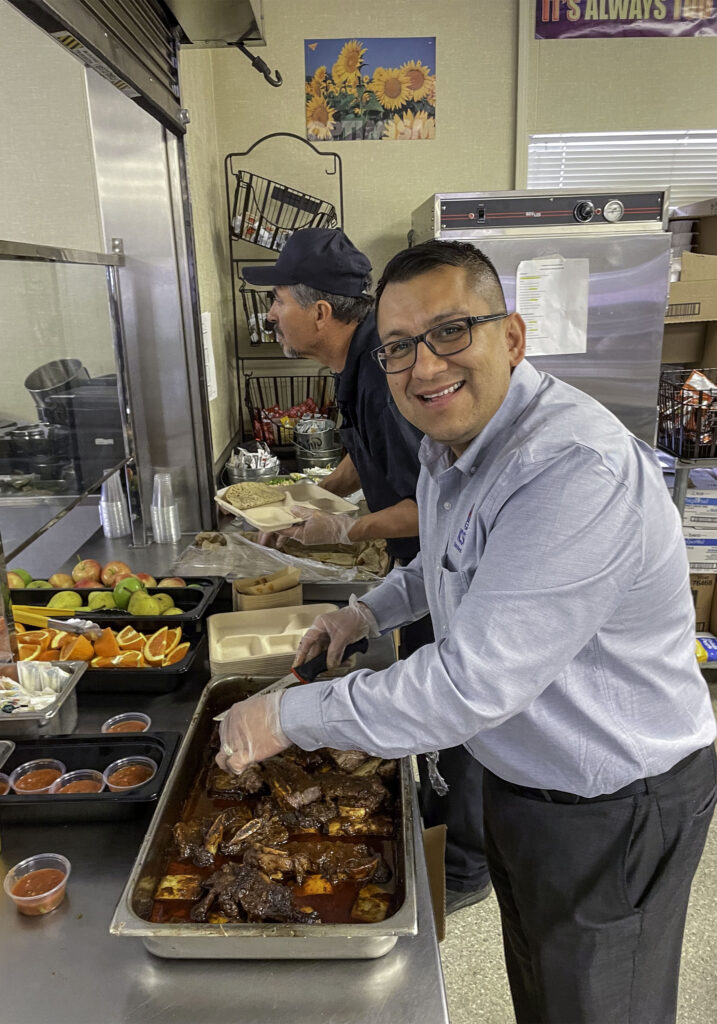
It was during the height of the COVID-19 pandemic that the need for universal free meals became even more apparent. The USDA, which oversees the National School Lunch Program (NSLP) and School Breakfast Program (SBP), relaxed its restrictions on who qualifies for free and reduced-cost lunches and breakfasts. Then, three years ago, as the impact of the pandemic lessened and schools became more stable, the USDA planned to return to more strict eligibility requirements.
Seeing an overwhelming need for nutritionally adequate meals for all children, California became the first state in the nation to adopt the Universal Meal Program. This program guarantees free breakfast and lunch for all children every school day, regardless of income eligibility. Starting in the 2022-23 school year, this became a requirement for all California schools.
Juarez says the need is huge here at home. About 140,000 of Kern County’s nearly 200,000 students rely on the UMP. Even though the program has been in place for the past few years, there are still families who are unaware that they, too, can take advantage of it.
“Families are now having some relief and knowing that they don’t have to worry Monday through Friday about breakfast and lunch for the student,” he said. It’s one less thing to worry about.”
Juarez also noted that under the NSLP and SBP, several families were on the cusp of qualifying for free or reduced-cost meals, but their income level was too high to receive those benefits. Now, thanks to the UMP, all students can access two meals.
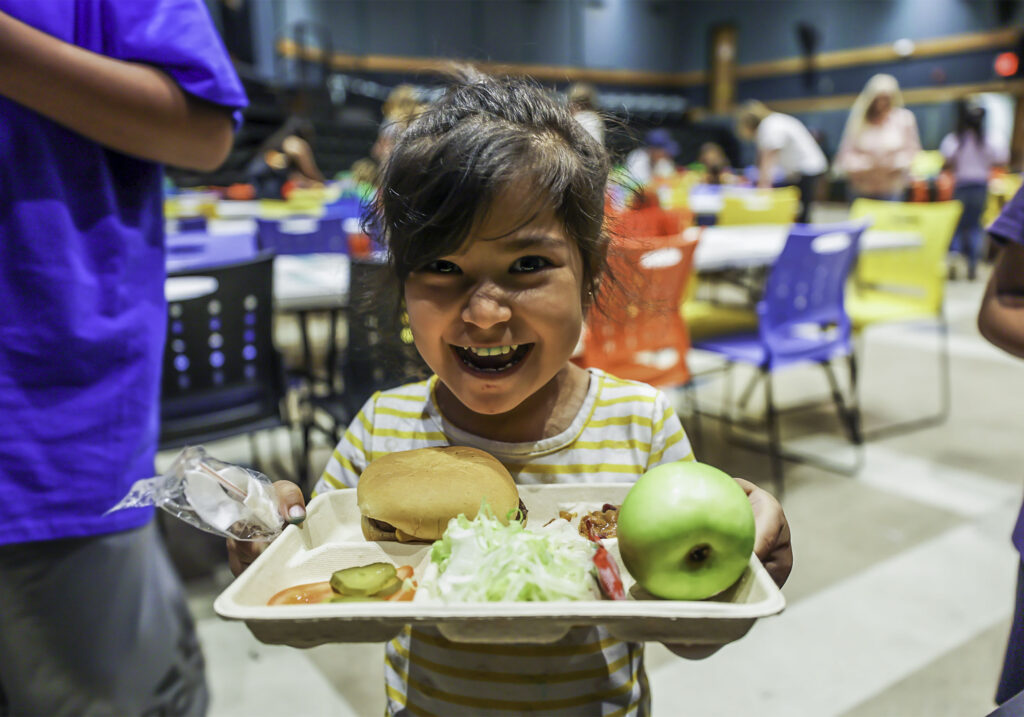
All California students are eligible for free breakfast and lunch.
In addition to ensuring students are fed, the program aims to eliminate the stigma of meal assistance. Juarez explained that if every student has access to nutritious food, nobody is singled out for being low-income.
“It’s very exciting because it is no longer a ‘needy’ program, no longer for the ‘poor’ kids,” Juarez said.
The program is essential because good nutrition is critical for students’ learning and overall well-being. According to the CDC, research shows that students who participate in school meal programs consume more whole grains, milk, fruits, and vegetables during meal times and have better overall diet quality. Studies also found that eating breakfast at school is associated with better attendance rates, fewer missed school days, and better test scores.
“If you’re hungry, that’s all you’re going to be thinking about,” Juarez explained. “There’s been a lot of research that says, if we don’t have our foundational needs met, we can’t succeed.”
The Universal Meal Program also supports local economies by sourcing food from local farmers and ranchers. Juarez, active with the Blue Zones project and Kern County Food Policy Council, advocates for policies promoting community wellness through nutrition and supporting local businesses.
“We have a local rancher in the county who shared with me recently that his business could potentially not exist if it wasn’t for the district purchasing from him,” Juarez said.

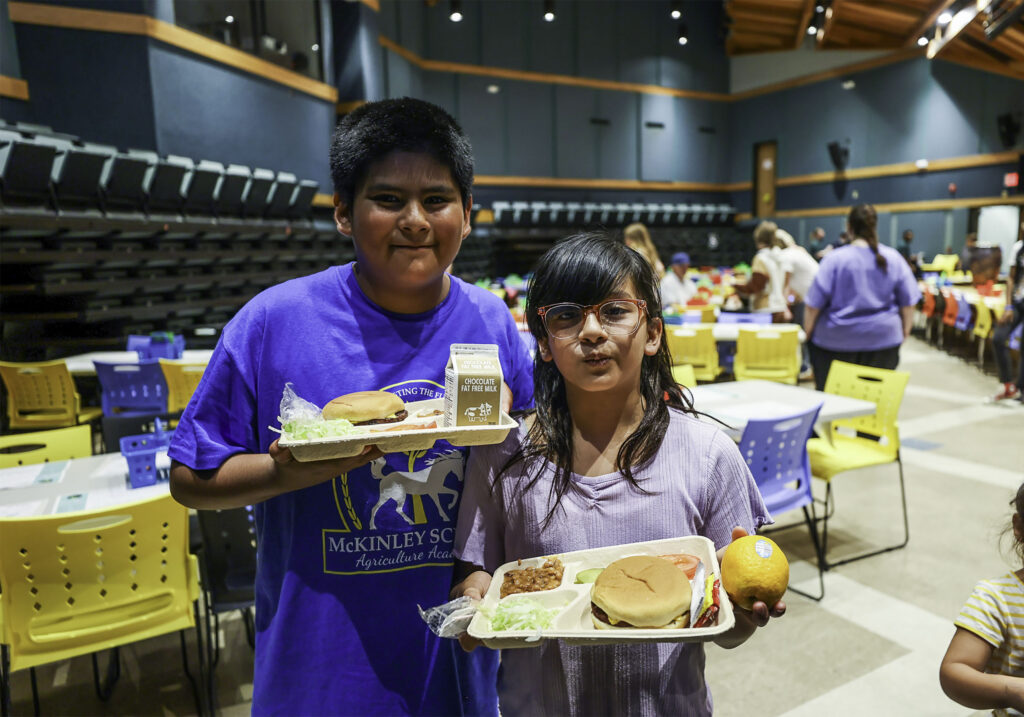
Under California law, schools with high poverty rates are required to sign up for federal student meal programs such as the NLSP and the SBP. The California State budget provides any additional funding needed for the UMP. Juarez acknowledges that some parents might fear that this could raise their taxes, but the evidence suggests no financial impact so far.
“The concern is valid, but right now, we’re not seeing that,” he said. “It comes down to staying really close to our legislators and making sure that they’re working out the budget in the best way.”
Juarez encourages all eligible families to continue applying for federal meal programs to ensure the county receives appropriate funding. Applications will still be sent home by local school districts to determine eligibility, but students will still have access to free breakfast and lunch regardless of income. Juarez explained that the higher the participation rate, the more fiscal support from the federal program. This helps to ensure all students are properly fed and results in overall improvements in meal programs.
Going forward, the goal is for the program to be implemented nationwide so that all school children, regardless of their location, have access to good nutrition.
“Public education is already a right; it only makes sense to make the meals available to students while they’re here as well,” Juarez said.
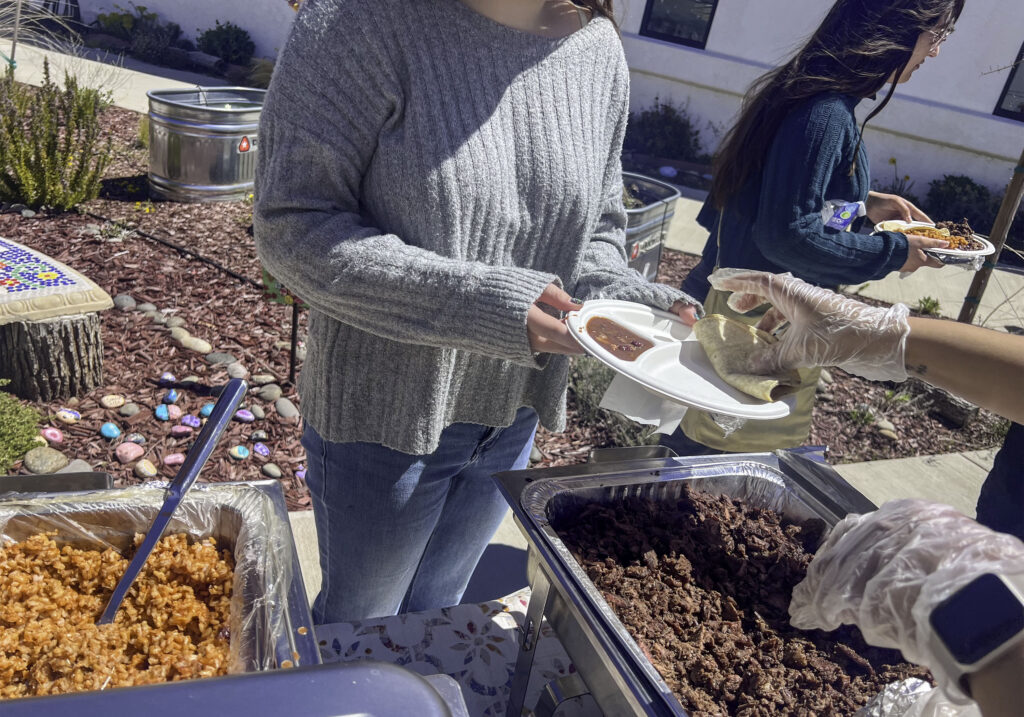
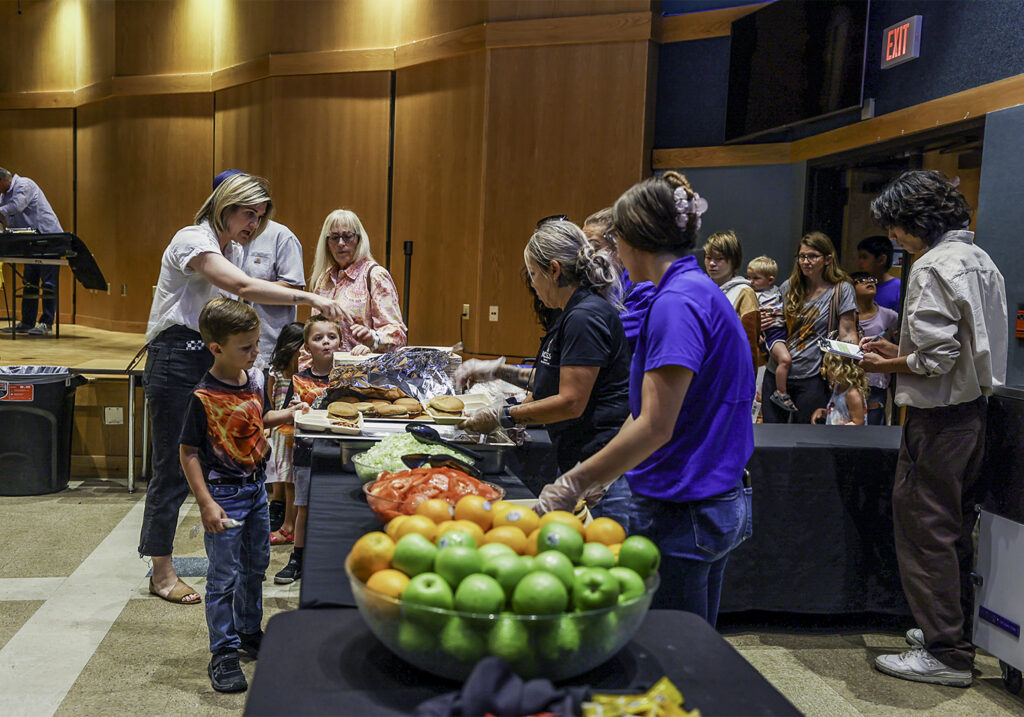
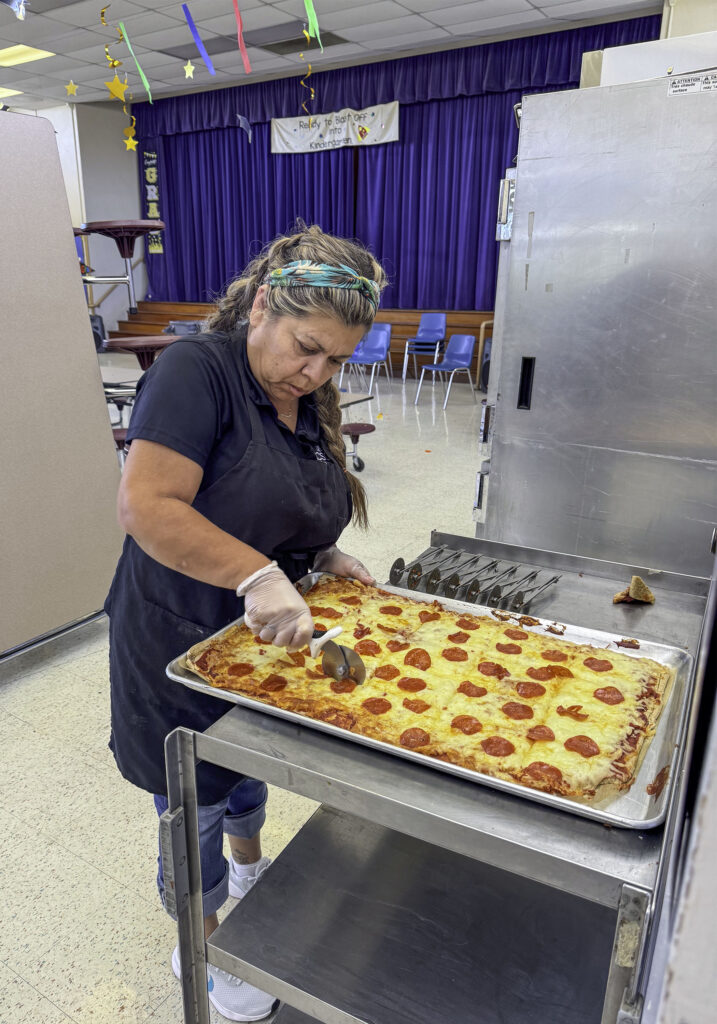


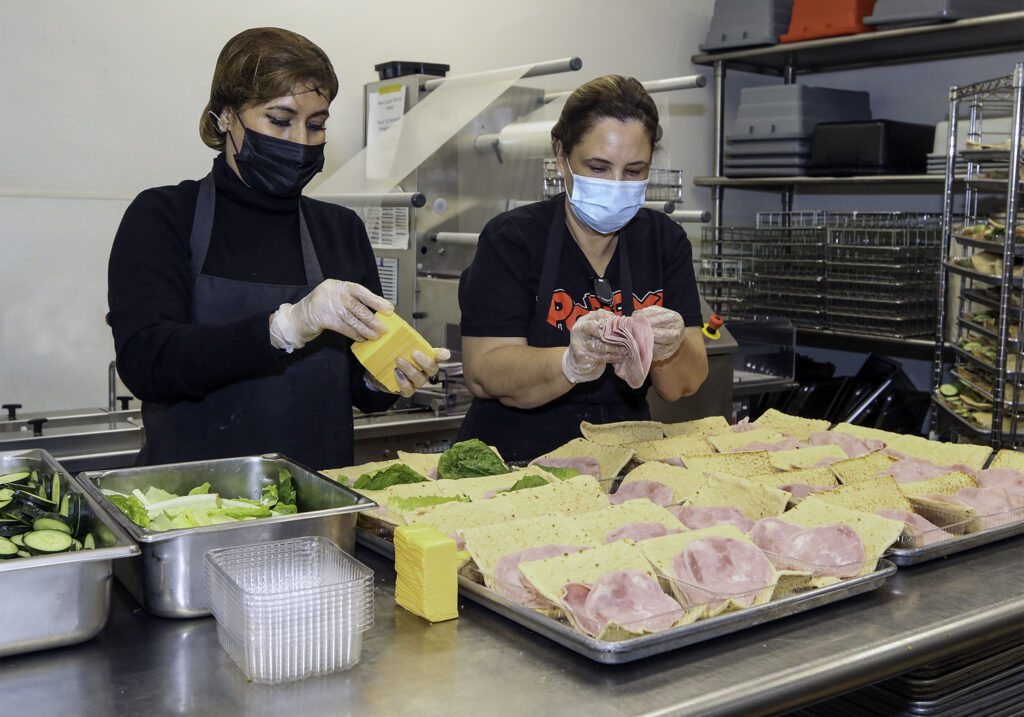
By Katie Avery
Katie Avery joined the Kern County Superintendent of Schools in 2023 as a Communications Specialist. As a former journalist and marketing professional, her passions include media and storytelling. Before joining KCSOS, Avery worked for various local TV stations as well as the health care industry.
